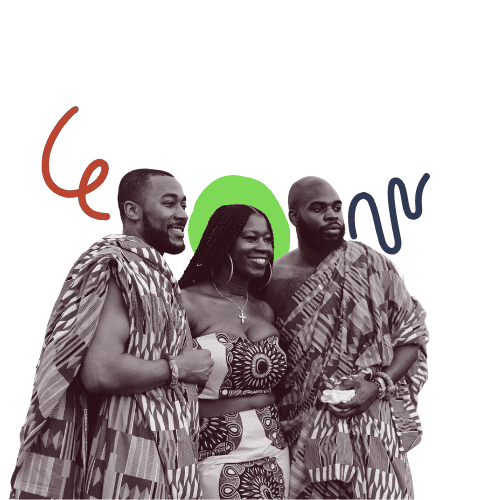Our programme areas
We work with activists, CSOs, governments and funders to make climate policy and more just, inclusive, and accountable. From policy and public budgets to climate finance and investment tools, our ReAlign programme ensures that decisions shaping the future of African communities are based on grounded, just, and locally relevant knowledge.
Our flagship data platform, Hadithi Zetu (“Our Stories”), captures the depth and nuance of community realities through disaggregated, participatory, and place-based data. We use tools like iterative community-based data collection, participatory mapping, and oral storytelling to ensure that evidence reflects lived experience, not just top-down metrics. The hub supports both decision-makers and movements with grounded, decolonial data for more responsive climate action.
We define "Liberatory Environmentalism" as a deeply intersectional process that centres feminist, decolonial, and emancipatory politics into climate and environmental interventions. We believe that climate and environmental decision making does not exist in a vacuum, but is rather deeply embedded within broader power dynamics, systemic injustices, and structural barriers to liberation. As a result, we view the climate moment as an opportunity to reshape systems of inequality.
We believe in an emerging vision, pluriversally defined by the communities we work with. Our organisational goal is to centre liberation within climate and environmental policy and investments by changing the way climate and environmental decisions are made on the continent.
AN EMERGING MISSION
Our mission is to support and facilitate climate and environmental decision making rooted in the lived realities and development priorities of those at the frontline of climate impacts.

Theory of change
Our theory of change aims to support a just, climate-resilient continent where communities shape their own development pathways, knowledge systems are decolonised, and decision-making is rooted in equity, solidarity, and care for both people and planet.
African climate and development systems remain shaped by external narratives, extractive knowledge frameworks, and top-down decision-making. Climate finance and policy processes often reproduce dependency, marginalisation, and invisibility of grassroots knowledge, particularly from women, Indigenous peoples, and local organisers. As a result:
Our mission at Africa ReAdapt, is therefore to realign climate and development policy, practice, and finance with the lived realities, data, and knowledge of African communities through decolonial methodologies, participatory research, and cross-sector collaboration.
Africa ReAdapt works as a think-and-do tank that bridges science, policy, and society through decolonial, participatory, and community-driven methodologies.
We create continuous feedback loops between communities, researchers, policymakers, and funders—centering African agency in defining, implementing, and measuring climate action.
Our work is anchored in two interconnected programme areas:
Hadithi Zetu (Our Stories):
A data and storytelling hub that nurtures community-based knowledge systems, participatory research, and decolonial data methodologies to inform policy and practice.ReAlign:
A policy and advocacy platform that strengthens African regional solidarity, promotes participatory grant-making, and supports grassroots organisers to engage in budget, investment, and policy processes.
Knowledge and Narrative Shift
If communities are equipped and resourced to document their realities and define their priorities using decolonial and feminist methodologies,
then African climate narratives will shift from deficit and dependency to agency and self-determination, influencing the frameworks of climate policy and finance
Institutional and Policy Alignment
If policymakers, funders, and regional bodies engage with grounded, community-derived evidence,
then climate and development policies will better align with local realities, leading to more effective and equitable outcomes.
Resourcing Power and Participation
If financial flows and grant-making processes are designed to be participatory and responsive to community-based data,
then climate finance will advance justice, not extraction—strengthening local resilience, accountability, and innovation.
Movement and Solidarity Building
If African actors build collective, regional positions rooted in solidarity and liberation,
then Africa will exert stronger influence in continental and global forums such as the AU, G20, BRICS, and COP processes, embedding justice and sovereignty in global climate governance.
